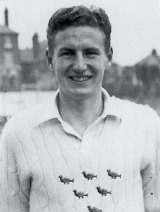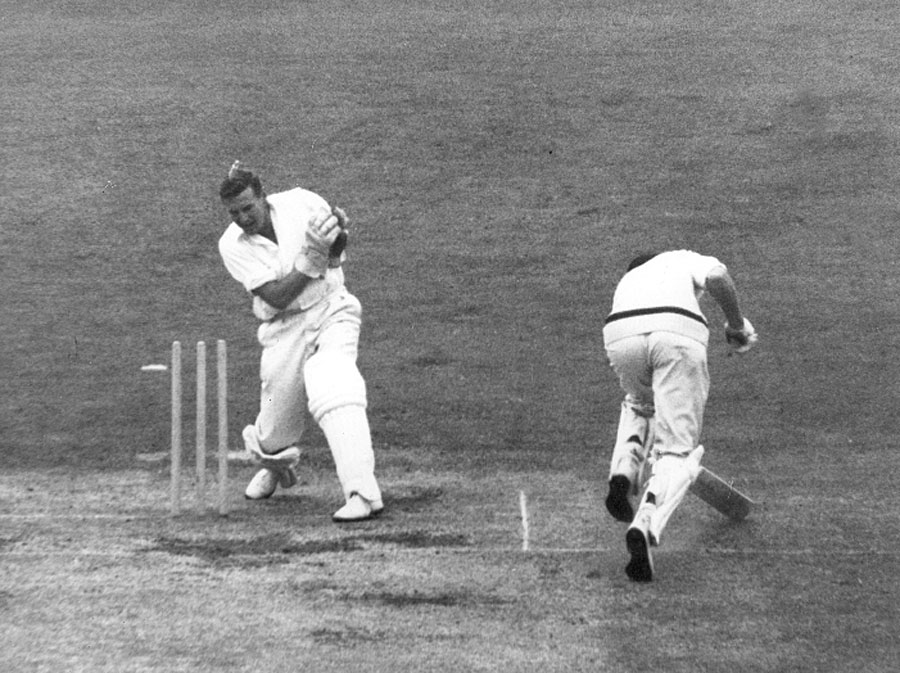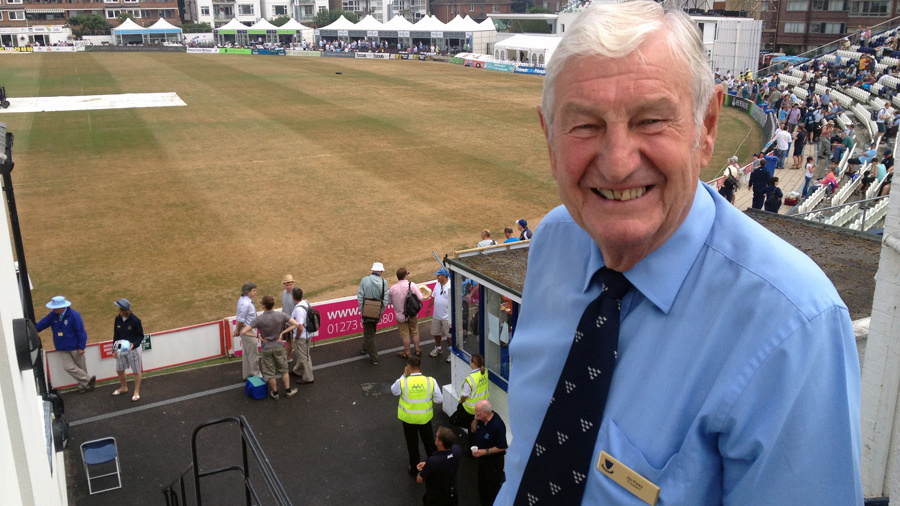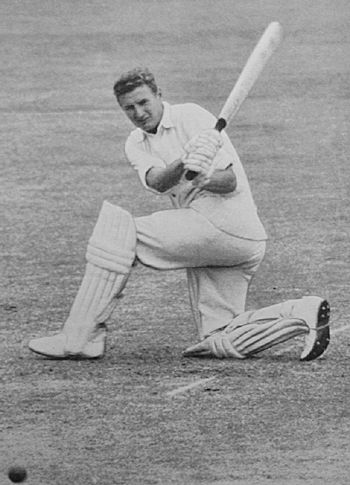Signed up at 17
James Michael Parks was the most successful member of a family that had playing connections with Sussex from 1924 until 1972 and together produced more than 70,000 runs for the County. He was born in Haywards Heath (like his father) in 1931, and like his father before him, Young Jim was an excellent schoolboy cricketer, playing for Hove County School before being signed up by Sussex at the age of 17.
Jim first played for Sussex in 1949, and made his debut 100 the following season when he made 159 not out against Kent. In 1951, again against Kent, Parks scored 188 in a partnership with Jim Langridge, in which the pair made 294, and for this performance Parks was awarded his County cap. Parks was also gaining valuable experience during the early 50s by playing with the likes of Fred Trueman and Ray Illingworth whilst completing his National Service.


A first Test Match against Pakistan
By 1953 Parks had completed his National Service and was playing full time for Sussex, and was to reach 1,000 runs in a season for the first time. He was becoming known for his stroke play and in particular his cover drive and it wasn’t long before he came to the attention of the England selectors, playing his first Test Match in 1954 against Pakistan. Although Parks was selected for an ‘A’ Tour he was not selected for the England team again until he was selected for an MCC side that toured South Africa in the winter of 1956/57. His tour was cut short though by injury and illness. Soon after the team had arrived in South Africa, Parks took a blow to the head which led to double vision and he was sent back to England. When it came to return to South Africa he was suffering from influenza and collapsed on the plane before it had taken off. He was taken to hospital where it was discovered he had pneumonia. That was the end of the tour that had never really got started.
Becoming a wicketkeeper
Over the next few seasons Parks continued to do well for Sussex, twice making 2,000 runs in a season, and appearing towards the top of the national averages. 1958 marked a turning point in his career as Parks became the regular wicketkeeper for Sussex. He had hoped to make the MCC side to tour the West Indies in the winter of 1959/60 but was not chosen and instead took up a coaching job with the Trinidad Cricket Council. Prior to the Fourth Test at Georgetown, Ken Barrington became ill and Parks was asked to travel to Georgetown to cover for Barrington. In the event Barrington did play but Parks was asked to play in a match against a local side. He scored 183 and when the tour party moved on to Trinidad, Parks was asked to play as wicketkeeper in the final Test. He scored 101 not out in the side’s second innings and effectively secured his place in the England side. From 1960 right through until the winter tour to West Indies in 1967/68, Parks continued to play for England and by the time he relinquished his place to Alan Knott, he had played 46 times for England.


A superb one-day player
As well as his England success, Parks’ style of play made him a formidable player in the one-day format that was introduced in 1963. In the first season of the Gillette Cup, Sussex made the final after beating Kent, Yorkshire and then Northants in the semi-final. Parks had made a vital contribution of 90 in the Yorkshire match, and then contributed 71 in a partnership of 160 with Ted Dexter in the semi-final. At Lord’s Sussex defeated Worcestershire in a low scoring game with Parks scoring 57 out of the Sussex total of 168. Sussex won by just 14 runs.
In 1964 Sussex repeated their feat of winning the Gillette Cup by defeating Warwickshire in the final. In the second round Parks won the Man of the Match for his 102 not out against Durham.
In 1967 Parks was made Sussex captain, but the following season resigned the captaincy, finding that dressing room squabbles were affecting his form. Parks played on for Sussex until 1972 when he left the club following a disagreement over wicketkeeping, and joined Somerset. He later accepted a life membership of Sussex and in the 1990s became the Club’s marketing manager.
In his Sussex career, Parks scored 29,138 runs in 563 matches at an average of 35.97 with a top score of 205 not out. He also took 872 catches, made 65 stumpings and took 42 wickets.